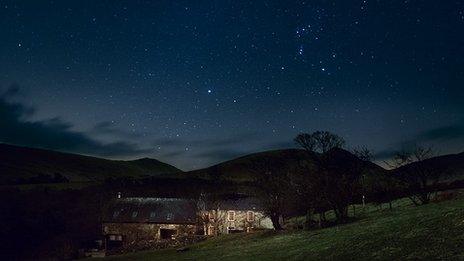South Downs National Park wins 'dark sky reserve' status
- Published
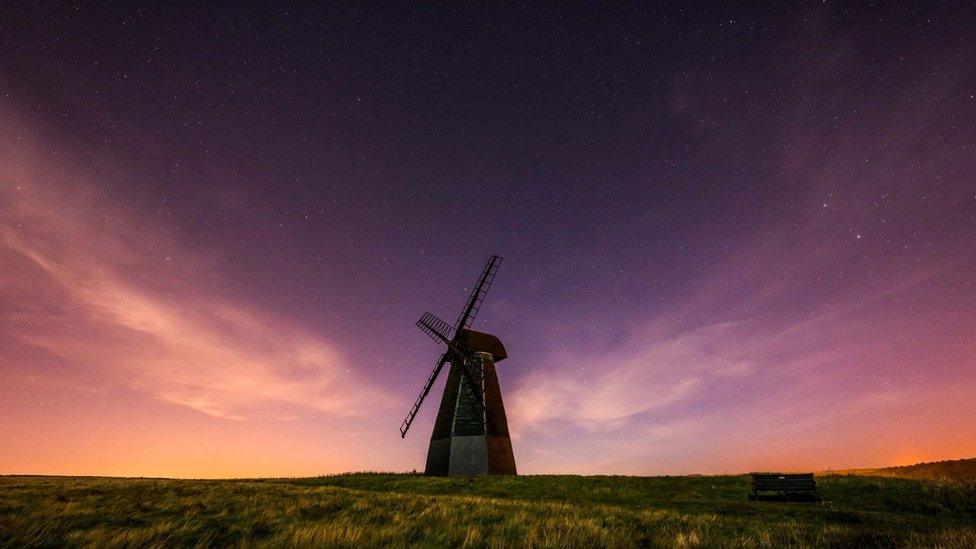
The park's dark skies are accessible to 17m people across London and the South East, ranger Dan Oakley said
The dark starlit skies of the South Downs National Park have won it special status.
The park has become the 11th site in the world to be made an international dark sky reserve by the International Dark-Sky Association (IDA).
Park ranger Dan Oakley said the south of England was under threat from losing its "last few patches of properly dark skies".
The park's new status showed they were worth protecting, he added.
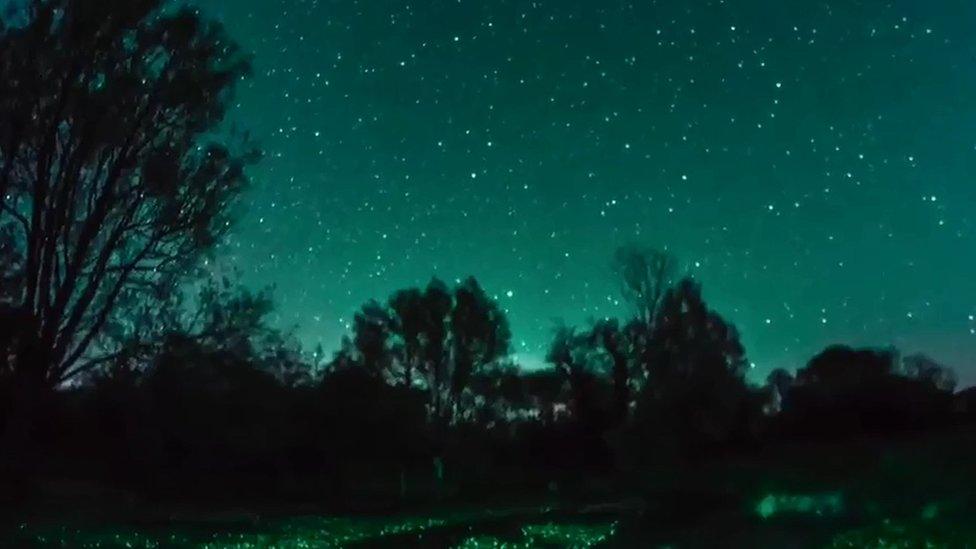
About two million people live within three miles (5km) of the park
Mr Oakley said the park's skies were "remarkable" - particularly when the centre of the Milky Way rose above the south horizon.
He said: "You see the Milky Way above your head, you'll see it twinkle. You'll see the dark dust lanes that go through the Milky Way."
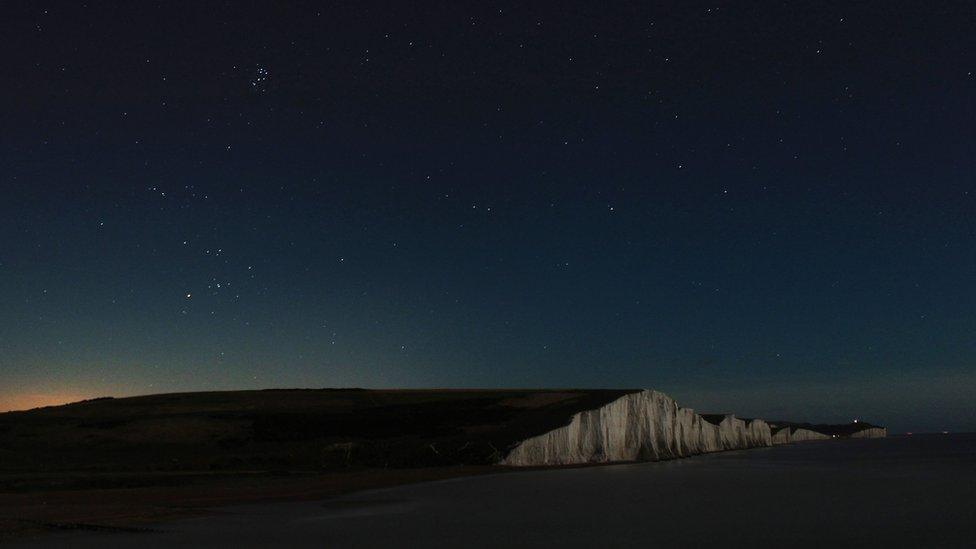
More than 1,300 people signed a "dark skies pledge"
The move to create the reserve saw 2,700 street lamps replaced with downward-facing LED lights.
More than 1,300 people signed a "dark skies pledge" and support came from more than 70 parish, town and county councils.
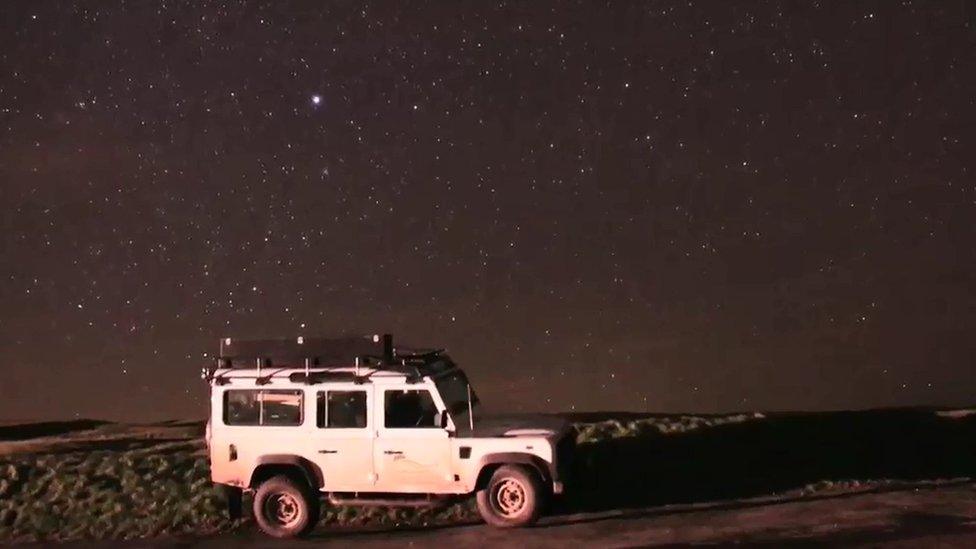
Young people are growing up with stars drowned out by lights, experts said
Dr John Mason, principal lecturer at the South Downs Planetarium, said many young people were growing up in places where night-time lighting drowned out all but the brightest stars and conserving the skies was vital.
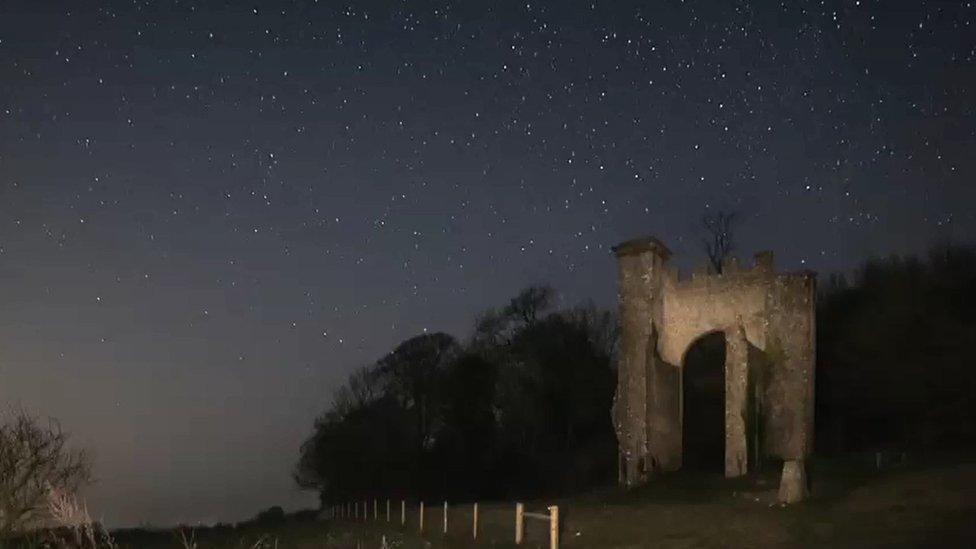
The South Downs reserve is the second in England - after Exmoor
Rural affairs minister Rory Stewart said the park brought communities "not just an opportunity to see the English countryside at its finest, but also stars far beyond our planet."
About two million people live within three miles (5km) of the park, which has Portsmouth, Brighton, Eastbourne, Winchester and Chichester on its edge.
The 11 existing dark sky reserves, external include Exmoor National Park in the south west and the Brecon Beacons and Snowdonia in Wales.
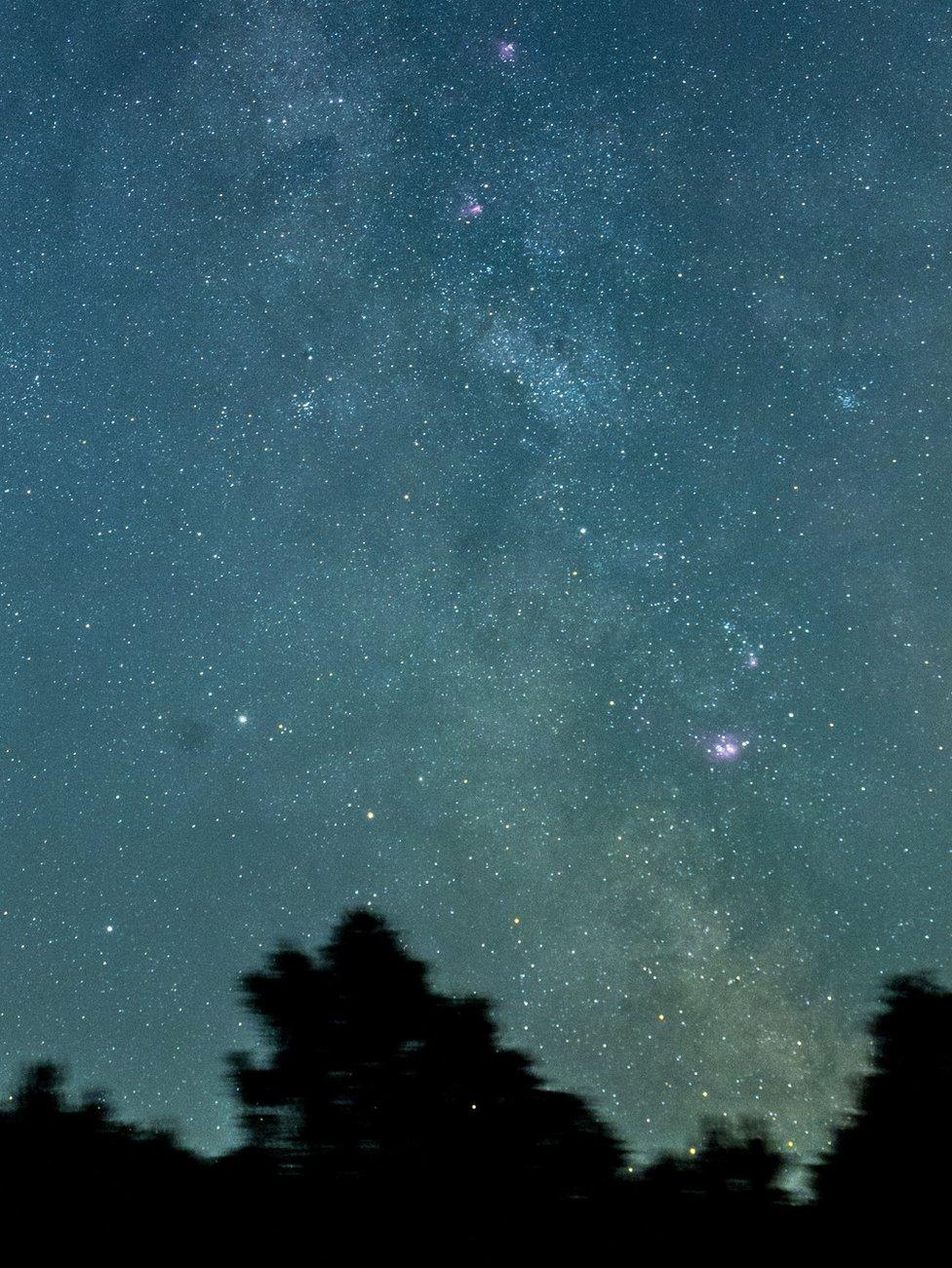
Mr Oakley said one of the highlights was seeing the Milky Way rise over the south horizon
- Published24 November 2014
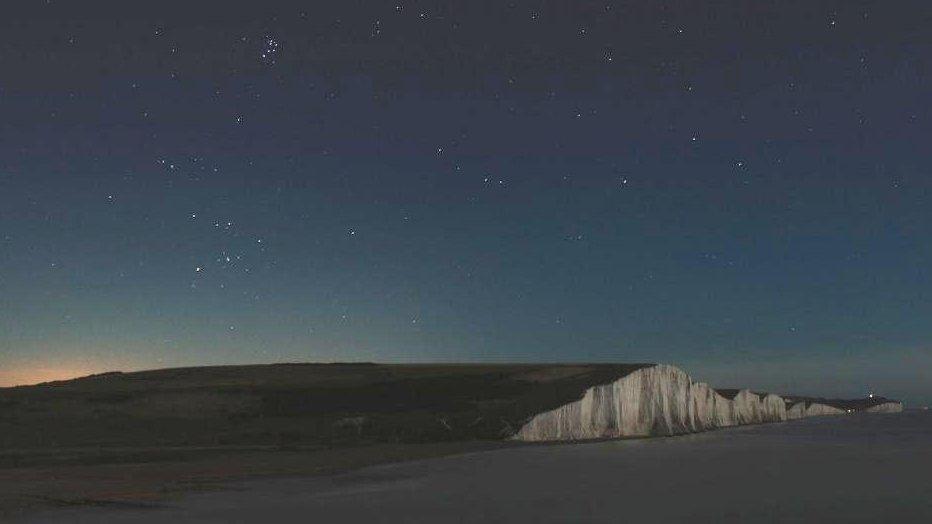
- Published25 March 2013
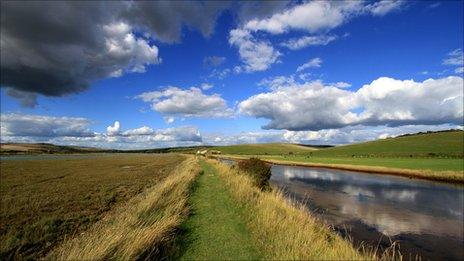
- Published15 March 2013

- Published19 February 2013
